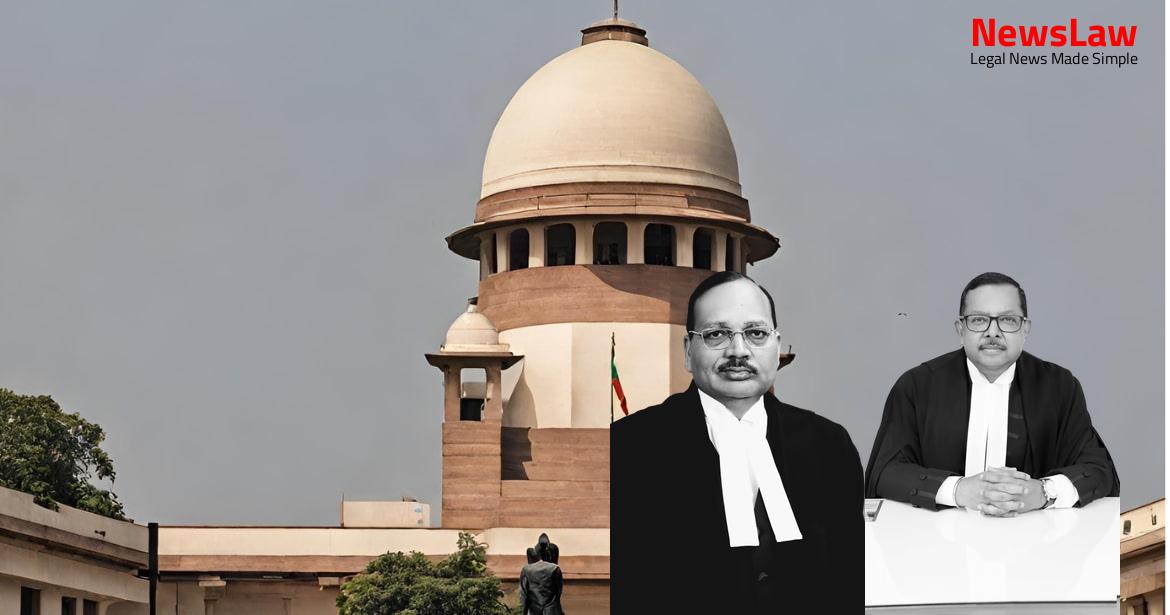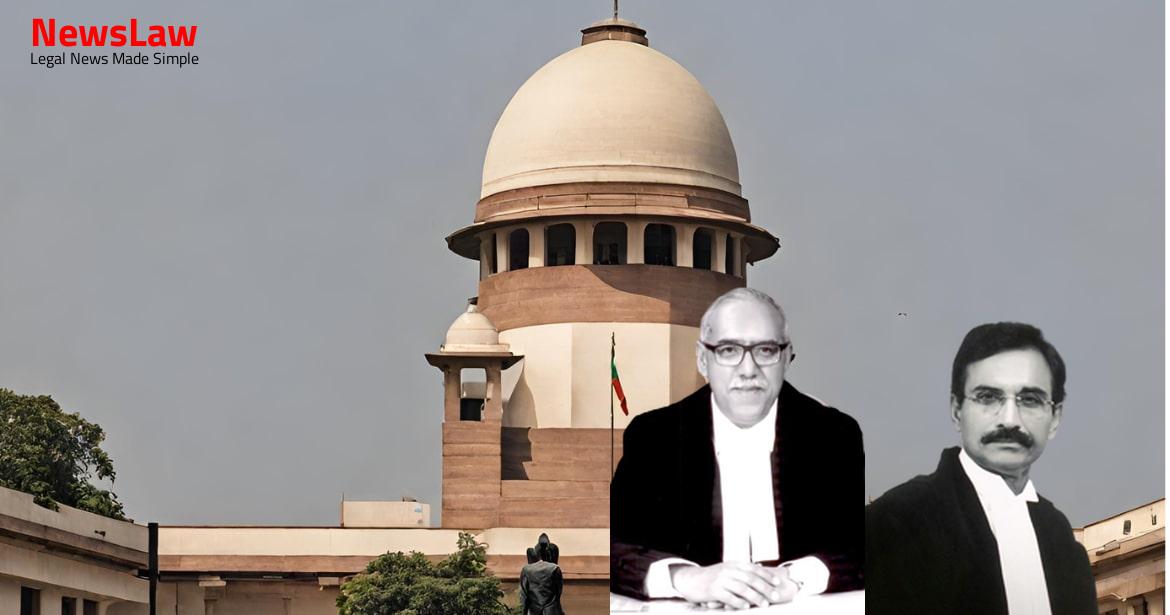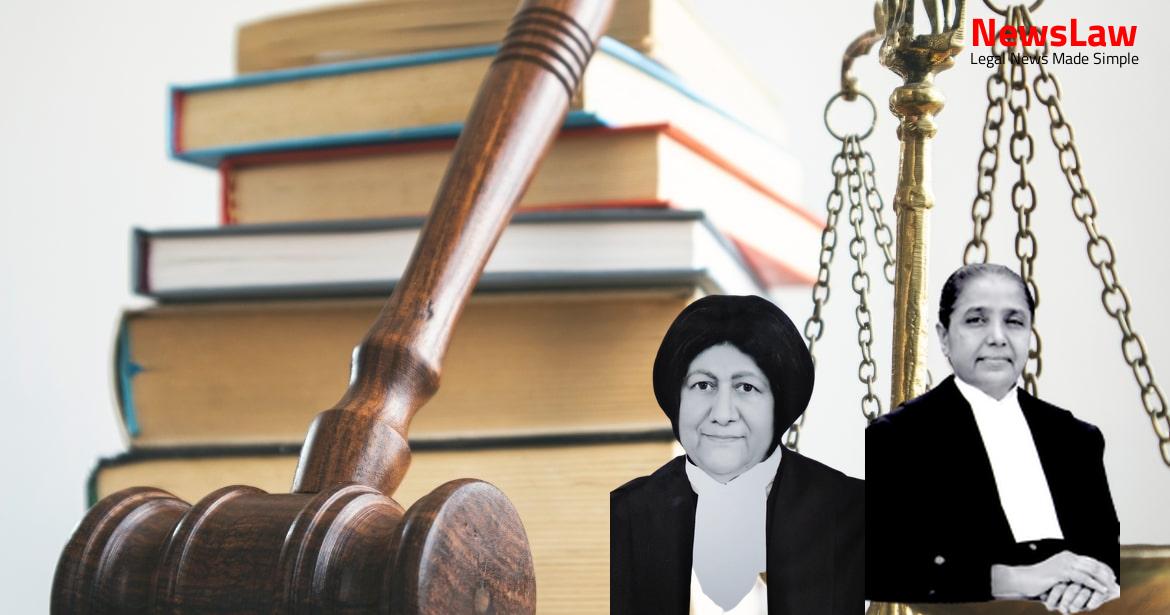In a recent decision by the Supreme Court of India, the court navigated the boundaries of judicial review in the case concerning challenges to delimitation orders. The judgment, focusing on upholding constitutional values, sheds light on the balance between the powers of the Delimitation Commission and the need for judicial scrutiny. This ruling carries significant implications for future cases involving delimitation exercises and ensures adherence to constitutional principles.
Facts
- The constituency was reserved by the Delimitation Commission under the Delimitation Act, 2002.
- The appellant challenged the delimitation exercise that resulted in the reservation of Bardoli Legislative Assembly Constituency for Scheduled Caste community.
- The Division Bench of the Gujarat High Court dismissed the Writ Petition filed by the appellant.
- The High Court, in the impugned judgement, invoked Article 329 of the Constitution to bar interference by courts in electoral matters.
- It held that the appellant’s challenge to Delimitation Commission’s Order No. 233 of 12.12.2006, approved by the President, could not be questioned in any court.
- The dismissal of the writ petition was based on Article 329(a) of the Constitution, which prohibits challenging the validity of laws related to delimitation or seat allotment in courts.
Also Read: Quashing of Complaint Case No. 85479 of 2022 in the Case of Industrial Dispute Violation
Analysis
- The Court allowed the appeal in part by setting aside para 3 of the impugned judgment that held there is a bar to challenge the order of delimitation of constituencies.
- A constitutional court can exercise judicial review within a limited sphere if the order is found to be arbitrary and against constitutional values.
- Judicial intervention may be restricted when it could unnecessarily delay the election process, as demonstrated in a previous case.
- Courts can check the validity of orders passed by the Delimitation Commission based on constitutional principles.
- A Constitution Bench decision in Meghraj Kothari vs. Delimitation Commission and others does not support complete restriction on judicial review.
- Article 329 restricts judicial scrutiny over laws related to delimitation of constituencies, but not every action of the delimitation exercise.
- Citizens should have a forum to plead grievances against delimitation decisions, instead of solely relying on the Delimitation Commission.
- The view that the delimitation of constituencies is entirely insusceptible to judicial review under Article 226 of the Constitution was not approved by the Court.
- In the case of State of Goa v. Fouziya Imtiaz Shaikh, the court affirmed the principles on Article 329(a) discussed in a previous decision.
- The contention seeking to prove the decision per incuriam was rejected by the court.
- Delimitation was directed to be conducted for nine new districts based on the affirmed ratio.
- Allowing such a scenario would go against the court’s duties and the principle of separation of powers.
- In Dravida Munnetra Kazhagam v. State of T.N., the court interpreted Articles 243O and 243ZG which mirror Article 329.
- It was noted that judicial intervention is not completely barred under these provisions, especially in cases of facilitating elections or when mala fide or arbitrary exercise of power is evident.
Also Read: Dera Baba Dargah Singh v. Jaswinder Singh: Legal Battle Summary
Decision
- The appellant is allowed to approach the High Court considering the subsequent events.
- No grounds are present currently for the appellant to challenge the decision.
Also Read: Court’s Jurisdiction in Re-appraising Arbitrator’s Findings
Case Title: KISHORCHANDRA CHHANGANLAL RATHOD Vs. UNION OF INDIA AND ORS. UNION OF INDIA SECRETARY (2024 INSC 579)
Case Number: C.A. No.-007930-007930 – 2024



